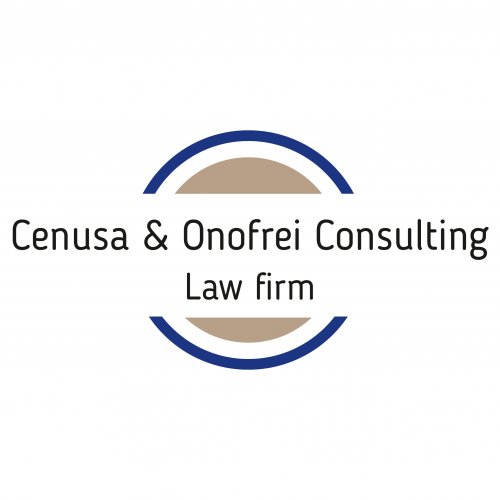Best Bankruptcy Lawyers in Republic of Moldova
Share your needs with us, get contacted by law firms.
Free. Takes 2 min.
Or refine your search by selecting a city:
List of the best lawyers in Republic of Moldova
About Bankruptcy Law in Republic of Moldova
Bankruptcy in the Republic of Moldova is regulated by the Law on Insolvency dated December 26, 2007. The purpose of this law is to provide a legal framework for the reorganization and liquidation of insolvent enterprises, as well as to protect the rights of creditors and debtors in the event of insolvency.
Why You May Need a Lawyer
It is recommended to seek legal advice in cases where you are facing financial difficulties and are considering filing for bankruptcy. A lawyer can help you understand the legal process, navigate complex paperwork, protect your rights, and represent you in court if necessary.
Local Laws Overview
Some key aspects of the law on insolvency in the Republic of Moldova include the procedures for initiating insolvency proceedings, the rights and obligations of debtors and creditors, the principles of reorganization and liquidation, and the role of the insolvency practitioner appointed to oversee the process.
Frequently Asked Questions
1. What is the difference between reorganization and liquidation in bankruptcy?
In reorganization, the aim is to rehabilitate the debtor's financial situation and continue its activity, while in liquidation, the debtor's assets are sold off to repay creditors.
2. Can an individual file for bankruptcy in the Republic of Moldova?
Yes, both individuals and businesses can file for bankruptcy in the Republic of Moldova.
3. What are the eligibility criteria for filing for bankruptcy?
To file for bankruptcy, a debtor must be insolvent, meaning that they are unable to pay their debts as they become due.
4. How long does the bankruptcy process take in the Republic of Moldova?
The duration of the bankruptcy process can vary depending on the complexity of the case, but it typically takes several months to several years to complete.
5. Will I lose all my assets if I file for bankruptcy?
Not necessarily. In reorganization, the debtor may be able to retain some of their assets to continue operations, while in liquidation, assets may be sold off to repay creditors.
6. Are there alternatives to bankruptcy in the Republic of Moldova?
Yes, there are alternatives such as debt restructuring, refinancing, and negotiation with creditors that may help avoid bankruptcy.
7. What are the consequences of bankruptcy in the Republic of Moldova?
Consequences may include damage to the debtor's credit score, restrictions on conducting business, and potential legal action by creditors.
8. Can a creditor force a debtor into bankruptcy in the Republic of Moldova?
Yes, a creditor can initiate insolvency proceedings against a debtor if they meet certain criteria specified in the law.
9. Can a bankruptcy decision be appealed in the Republic of Moldova?
Yes, decisions related to insolvency proceedings can be appealed to higher courts within a specified timeframe.
10. How can I find a reputable bankruptcy lawyer in the Republic of Moldova?
You can seek recommendations from friends or colleagues, consult legal directories, or contact the Moldovan Bar Association for referrals to qualified bankruptcy lawyers.
Additional Resources
For more information on bankruptcy in the Republic of Moldova, you can refer to the National Institute of Justice, the Ministry of Justice, or the Association of Insolvency Practitioners of Moldova.
Next Steps
If you are considering filing for bankruptcy or have questions about the insolvency process in the Republic of Moldova, it is advisable to consult with a qualified bankruptcy lawyer who can provide you with personalized legal advice and representation throughout the proceedings.
Lawzana helps you find the best lawyers and law firms in Republic of Moldova through a curated and pre-screened list of qualified legal professionals. Our platform offers rankings and detailed profiles of attorneys and law firms, allowing you to compare based on practice areas, including Bankruptcy, experience, and client feedback.
Each profile includes a description of the firm's areas of practice, client reviews, team members and partners, year of establishment, spoken languages, office locations, contact information, social media presence, and any published articles or resources. Most firms on our platform speak English and are experienced in both local and international legal matters.
Get a quote from top-rated law firms in Republic of Moldova — quickly, securely, and without unnecessary hassle.
Disclaimer:
The information provided on this page is for general informational purposes only and does not constitute legal advice. While we strive to ensure the accuracy and relevance of the content, legal information may change over time, and interpretations of the law can vary. You should always consult with a qualified legal professional for advice specific to your situation.
We disclaim all liability for actions taken or not taken based on the content of this page. If you believe any information is incorrect or outdated, please contact us, and we will review and update it where appropriate.
Browse bankruptcy law firms by city in Republic of Moldova
Refine your search by selecting a city.












